The male hormone cycle frequently goes unnoticed, often eclipsed by the more commonly discussed female hormonal cycle. Yet, recognizing the variations in male hormones, especially testosterone, can offer important insights into physical, mental, and emotional well-being. Unlike the monthly cycle experienced by women, the male hormone cycle follows a daily pattern, affecting mood, energy, and overall health. This article will delve into five key facts about the male hormone cycle, highlighting its importance and providing tips for achieving optimal hormonal health.
What is Male Hormone?
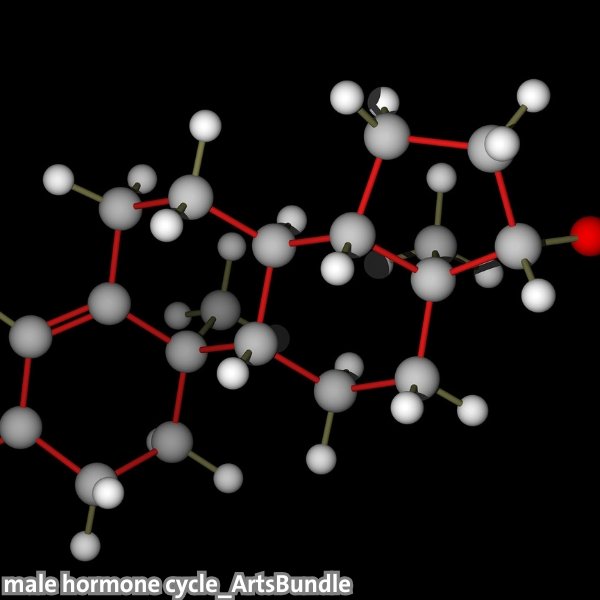
Male hormones, especially testosterone, play a crucial role in various physical and emotional functions. They help manage muscle development, energy, sex drive, and even mood. However, testosterone doesn’t act alone; other hormones like cortisol, DHEA, and growth hormone are also important players.
Daily Hormonal Patterns in Men
In contrast to women, who have a hormonal cycle lasting about 28 days, men experience daily variations in testosterone levels. This daily male hormone cycle leads to higher testosterone levels in the early morning, which gradually decrease throughout the day, reaching their lowest levels by evening.
Comparing the Male and Female Hormone Cycles
Short-Term vs. Long-Term Changes
- Women undergo more cyclical hormonal changes linked to ovulation and menstruation, while men have a more stable hormone cycle characterized by daily fluctuations.
- However, men do face long-term hormonal shifts as they age, particularly a gradual decrease in testosterone after their 30s.
The Impact of Lifestyle and Aging on Hormonal Levels
- Elements such as stress, sleep quality, nutrition, and exercise play a significant role in testosterone levels.
- Moreover, aging leads to a consistent decline in testosterone, often referred to as andropause, which can impact energy, mood, and sexual health.
Fact 1:Testosterone Levels Are Highest in the Morning
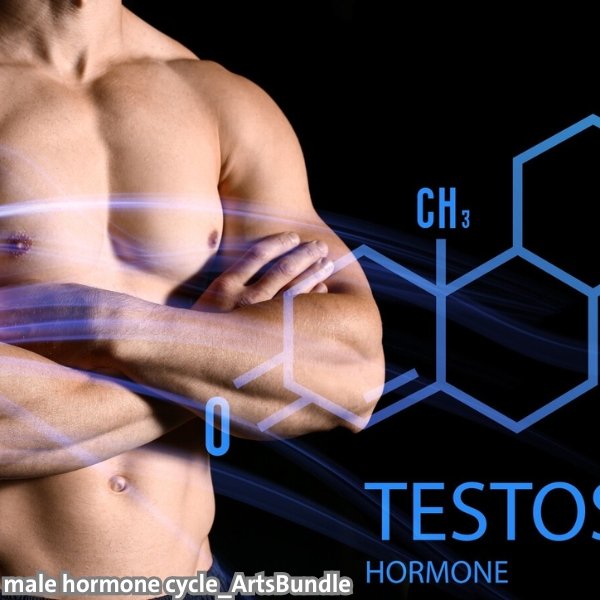
The Influence of Circadian Rhythms on Testosterone
- The production of testosterone is significantly influenced by the body’s circadian rhythms.
- While we sleep, the body engages in repair and recovery, which boosts hormone production,
- resulting in elevated testosterone levels shortly after waking up, aligning with the male hormone cycle.
The Effect of Sleep on Hormonal Health
- Lack of sufficient sleep can throw off the circadian rhythm, leading to decreased testosterone levels.
- Studies indicate that even one night of poor sleep can adversely affect hormone production, disrupting the male hormone cycle.
Advantages of Utilizing Morning Testosterone Peaks
- Engaging in morning workouts or tasks that demand concentration and energy can take advantage of the natural increase in testosterone during the male hormone cycle. This is the perfect time for strength training or tackling challenging mental tasks.
- Optimal Times for Exercise and Concentrated Work: As testosterone levels gradually decrease throughout the day, mornings or early afternoons are the prime times for physical and cognitive activities that require optimal performance, maximizing the benefits of the male hormone cycle.
Fact 2: Hormonal Cycles Influence Mood and Energy
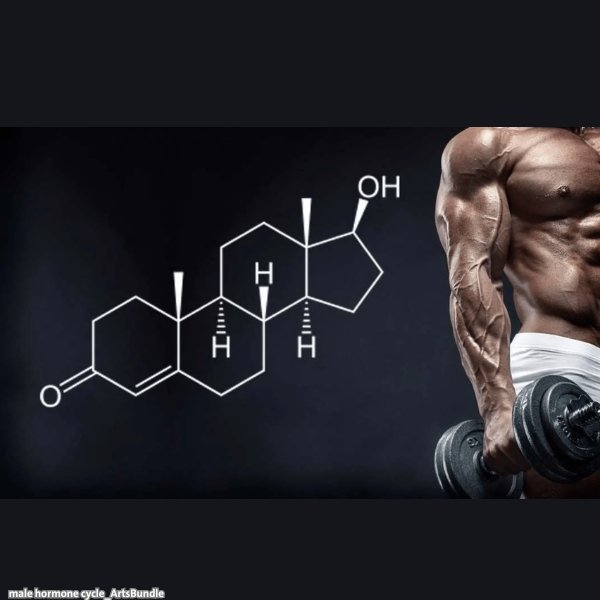
The Impact of Testosterone on Mood
- Low levels of testosterone are associated with a higher likelihood of mood disorders, such as depression.
- This hormone plays a crucial role in the production of neurotransmitters like serotonin, which are essential for mood regulation and emotional balance within the male hormone cycle.
How Hormonal Changes Affect Energy
- Variations in testosterone can lead to shifts in energy and motivation.
- Experiencing chronic fatigue or a lack of drive may signal hormonal imbalances within the male hormone cycle.
Recognizing Hormonal Trends
- Maintaining a regular exercise routine, managing stress, and eating a balanced diet are vital for stabilizing both mood and energy levels.
- Engaging in activities like strength training can naturally enhance testosterone production and support mental health, optimizing the male hormone cycle.
Foods and Lifestyle Choices for Hormonal Balance
are essential for keeping testosterone levels in check and supporting the overall male hormone cycle.
Consuming nutrient-rich foods that are high in zinc, magnesium, and healthy fats—such as nuts, avocados, and fatty fish.
Fact 3:Stress Can Disrupt the Male Hormone Cycle
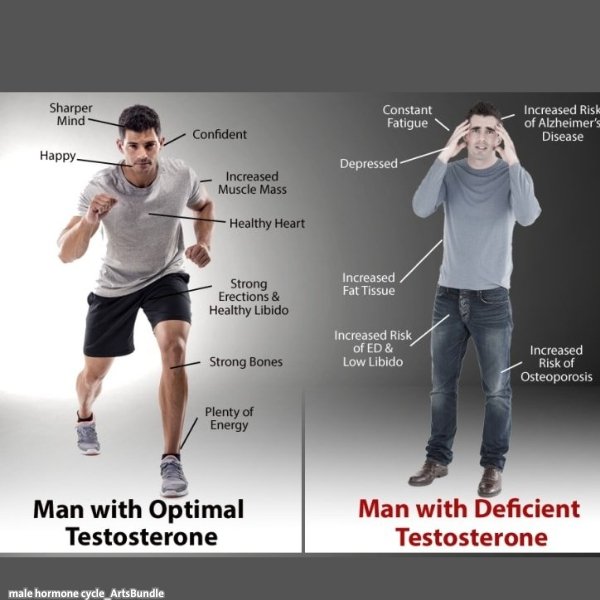
• The Effect of Cortisol on Testosterone: When stress becomes chronic, cortisol levels rise, which can hinder testosterone production. Ongoing stress can upset the fine balance necessary for healthy hormone function within the male hormone cycle.
• Indicators of Chronic Stress on Male Hormones: Typical signs of hormonal imbalances due to stress include tiredness, decreased libido, mood fluctuations, and challenges in muscle building, all of which can disrupt the male hormone cycle.
• Strategies to Alleviate Stress and Enhance Hormonal Health: Techniques for reducing stress, such as meditation, deep breathing exercises, and consistent physical activity, can help decrease cortisol levels and promote testosterone production, supporting the male hormone cycle.
• The Importance of Nutrition in Stress Management: Consuming a diet high in antioxidants, whole grains, and lean proteins can help mitigate the impact of stress on hormones. It’s also wise to limit caffeine and alcohol intake to maintain a balanced male hormone cycle.
Also read: Mitolyn Review: The Ultimate Weight Loss Supplement 2024
Fact 4: Hormones Change With Age
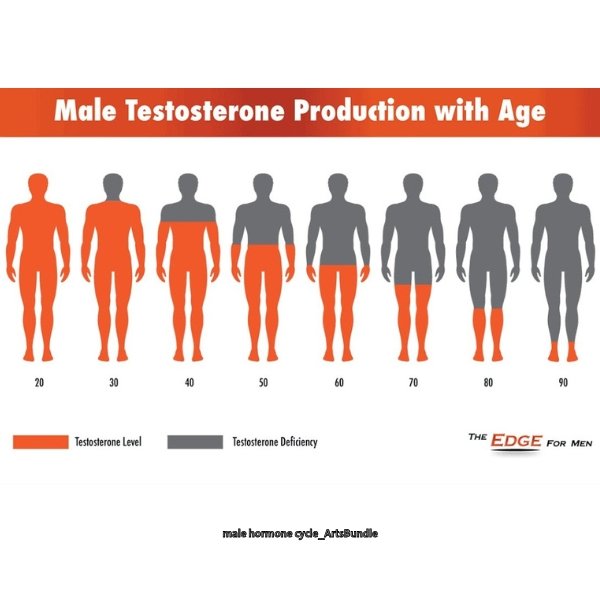
- Testosterone Levels Decline After 30: Andropause is the term used to describe the gradual decrease in testosterone that men face as they grow older. Unlike the sudden hormonal shifts women experience during menopause, andropause unfolds more slowly, yet it can still significantly impact well-being.
- Signs of Hormonal Changes with Age: Common signs include loss of muscle mass, weight gain, lower libido, fatigue, and mood fluctuations. Identifying these symptoms early and taking action can help lessen their impact.
- Keeping Hormonal Balance as Men Get Older:
- Options for Hormone Replacement Therapy (HRT): For some men, HRT may help restore testosterone levels and ease andropause symptoms. It’s crucial to speak with a healthcare professional before exploring this route.
- Natural Methods to Enhance Testosterone Levels: Making lifestyle adjustments, such as engaging in regular physical activity, strength training, maintaining a healthy weight, and ensuring sufficient sleep, can naturally elevate testosterone levels and slow down the effects of aging.
Fact 5: Hormones Influence Physical and Sexual Health
- The Connection Between Testosterone and Muscle Development: Testosterone enhances protein synthesis, which is essential for muscle growth and repair. It also significantly contributes to physical endurance and recovery following workouts.
- The Importance of Hormones for Bone Health: Insufficient testosterone levels are associated with lower bone density and a higher likelihood of fractures, highlighting the crucial role of hormonal balance in maintaining strong bones.
- The Influence of Hormones on Sexual Health and Reproduction:
– How Testosterone Influences Sexual Drive: Testosterone is a key factor in male sexual desire. Variations in this hormone can have a direct effect on libido and sexual performance.
– Hormonal Factors in Male Infertility: Hormonal imbalances, such as low testosterone, can negatively impact sperm production and quality, resulting in fertility issues. Correcting these imbalances can enhance reproductive health.
The male hormone cycle is crucial for overall health, influencing everything from mood and energy levels to physical performance and sexual well-being. By recognizing the daily and long-term fluctuations in hormones, men can take charge of their health and lifestyle choices. With the right knowledge and by embracing habits that promote hormonal balance, men can enhance their well-being and lead a healthier, more satisfying life.
How can I naturally boost testosterone?
Exercise, a balanced diet, quality sleep, stress management, and limiting alcohol can naturally boost testosterone.
Can stress lower testosterone?
Yes, chronic stress increases cortisol, which suppresses testosterone, leading to fatigue and reduced libido. Managing stress helps maintain balance.
What are the signs of hormonal imbalance in men?
Common signs include fatigue, mood swings, reduced libido, and unexplained weight gain.
Can diet affect testosterone levels?
Yes! A nutrient-rich diet can significantly boost testosterone, while unhealthy eating habits can deplete it.
Do men experience a “male menopause”?
Yes, this is known as andropause, characterized by a gradual decline in testosterone levels with age.
How often should men check their hormone levels?
It’s advisable to check hormone levels annually, especially after the age of 40 or if symptoms arise.
Is it possible to increase testosterone without medication?
Absolutely! Lifestyle changes, such as regular exercise, balanced nutrition, and stress management, are highly effective.





